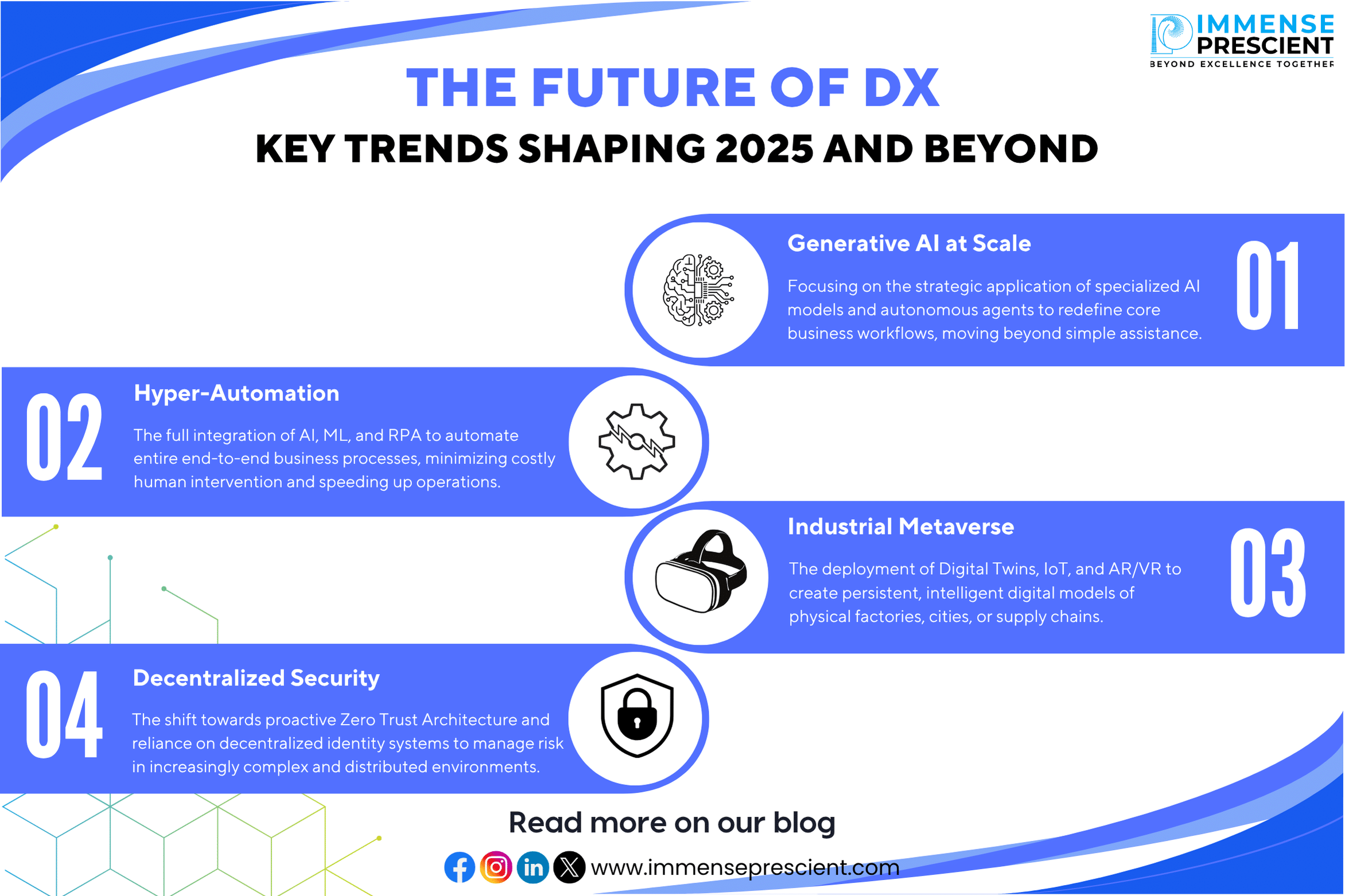The Future of Digital Transformation: Key Trends Shaping 2025 and Beyond
Introduction
The pace of digital transformation has never been faster. With businesses striving to remain competitive in an increasingly tech-driven world, the future of digital transformation promises even more profound changes. From artificial intelligence and automation to sustainability and human-centred design, 2025 and beyond will reshape how organizations innovate, operate, and deliver value.
In this blog, we’ll explore the key trends shaping the future of digital transformation and how enterprises can prepare to thrive in this evolving landscape.
1. Artificial Intelligence Becomes Mainstream
AI is no longer just an add-on; it has become the backbone of business strategies. In 2025, we’ll see greater adoption of generative AI, predictive analytics, and AI-driven decision-making across industries. This shift will enable organizations to deliver personalized customer experiences, optimize operations, and uncover new business models.
🔗 Related reading: Data-Driven Decision Making: Building Analytics into Your Software Products
2. Cloud-Native Transformation
Moving beyond simple cloud adoption, organizations are now focusing on cloud-native solutions modernizing legacy systems, containerization, and serverless architectures. This approach empowers agility, scalability, and cost efficiency, making it a cornerstone of future-ready enterprises.
🔗 Related reading: From Legacy to Leading-Edge: Modernizing Applications for the Cloud Era
3. Cybersecurity as a Business Priority
As digital ecosystems expand, so do cyber risks. Future transformation strategies will prioritize zero-trust security, AI-driven threat detection, and regulatory compliance. Cybersecurity will no longer be reactive; it will be built into the foundation of digital systems.
4. Sustainability-Driven Technology
Green IT and sustainable practices will become central to digital transformation. Businesses will adopt energy-efficient data centers, sustainable software development, and circular economy models to align with environmental goals and consumer expectations.
🔗 Related reading: Sustainable Software Development: Building Greener, More Efficient Systems
5. Human-Centric Digital Transformation
While technology drives change, the human factor remains vital. Future strategies will focus on employee empowerment, reskilling, and creating user-friendly digital experiences. Companies that balance technology with empathy will lead the way.
6. Low-Code/No-Code Empowerment
By 2025, low-code and no-code platforms will democratise innovation, enabling business leaders and employees to create solutions without requiring deep technical expertise. This shift will accelerate innovation cycles and reduce time-to-market.
🔗 Related reading: The Future of Software Development: Low-Code, No-Code, and the Role of Professional Developers
Conclusion: Preparing for the Future of Digital Transformation
The future of digital transformation is not about adopting the latest tools it’s about building agile, sustainable, and human-centered organizations ready to adapt to constant change. By embracing AI, cloud-native solutions, cybersecurity, sustainability, and low-code platforms, businesses can stay ahead in 2025 and beyond. 🚀 At Immense Prescient, we help enterprises, startups, and policymakers design strategies that turn these trends into growth opportunities.




